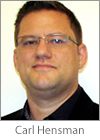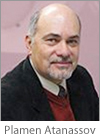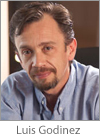Winners’ symposia at 229th ECS Meeting
Tuesday | 1630h
Sapphire Ballroom BC/FG
In its first Science for Solving Society’s Problems Challenge, ECS partnered with the Bill & Melinda Gates Foundation to leverage the brainpower of the many scientists in electrochemistry and solid state science and technology that regularly attend ECS meetings. ECS invited 100 researchers to learn about the issues and propose their solutions during a multi-day workshop at the Electrochemical Energy and Water Summit in Cancun, Mexico held October 5-9, 2014.
Through the Challenge, ECS awarded over $360,000 of seed funding to seven innovative research projects addressing critical technology gaps in water, sanitation, and hygiene challenges being faced around the world.
Join the grantees in San Diego as they present their work and address how they are applying electrochemistry to global issues through their research. Following the program, the grantees will join the poster session at 1800h to network and further present their work . Grantees will also be presenting in selected symposia throughout the week. Find further details in the technical program or by using the ECS Meeting Scheduler.
Key participants

Carl Hensman
Water, Sanitation and Hygiene team within the Global Development Program of the Bill & Melinda Gates Foundation
Keynote Speaker

E. Jennings Taylor
Faraday Technology, Inc. and Treasurer of ECS
Moderator
Grantees

Eric Wachsman
University of Maryland | USA
Awarded $50,000
Monday | 0925-0945h
Indigo Ballroom C
Sustainable Water Treatment Using an SOFC-Based Combined Heat and Power System
Dr. Wachsman’s project will demonstrate a highly-efficient, low-cost solid oxide fuel cell (SOFC) for the co-generation of high quality heat for dewatering and drying processes, electric power and potable water using waste-produced biogas. The technology will be based on high-power-density low-temperature SOFCs, but they will be optimized for heat production rather than electric power. The SOFC stack will use proprietary all-ceramic anodes, which are both carbon and sulfur tolerant at lower temperatures to allow for thermal cycling and long-term operation without fuel contaminant induced degradation issues, such as sulfur poisoning. The project will be a collaboration among Eric Wachsman, Stephanie Lansing and Redox Power Systems, a company formed to commercialize Dr. Wachsman’s SOFC technology. Learn more about Dr. Wachsman and his work.

Gemma Reguera
Michigan State University | USA
Awarded $40,000
Monday | 1000-1020h
Sapphire Ballroom H
SPEED: Sanitation and Processing for Energy with Electrochemical Devices
Develop microbial electrochemical reactors that harvest energy from human waste substrates using bioanodes engineered to process the waste into biofuels while simultaneously cleaning water for reuse. The microbial catalysts will be selected for their efficiency at processing the wastes, but also for their versatility to process other residential and agricultural waste substrates. This will provide an affordable, easy to operate system for the decentralized processing of a wide range of wastes for improved sanitation, water reuse, and energy independence. Learn more about Dr. Reguera and her work.

Plamen Atanassov
University of New Mexico | USA
Awarded $70,000
Monday | 1020-1040h
Sapphire Ballroom H
Self-Powered Supercapacitive Microbial Fuel Cell
Produce bio-catalytic septic cleaning materials that incorporate microorganisms removing organic and inorganic contaminants, while simultaneously creating electricity (or hydrocarbon fuel) for energy generation in support of a sustainable and portable system. Learn more about Dr. Atanassov and his work.

Neus Sabaté
Institut de Microelectrónica de Barcelona (CSIC) | Spain
Awarded $50,000
Monday | 1600 – 1620h
Indigo Ballroom B
Powerpad: Non-Toxic Capillary-Based Flow Battery for Single Use Applications
Tuesday | 1400-1420h
Indigo Ballroom A
Powerpad: Evaluation of Redox Chemistries for Disposable Power Sources
Develop a non-toxic portable source of power for water measuring and monitoring systems, which will not require recycling facilities. Using inexpensive materials such as paper, nanoporous carbon electrodes and organic redox species, the team will strive to create a biodegradable and even compostable power source. The project is a collaboration among Neus Sabaté, Juan Pablo Esquivel, and Erik Kjeang from the Simon Fraser University in Canada. Learn more about Dr. Sabaté and her work.

Falk Harnisch
Helmholtz Centre for Environmental Research | Germany
Awarded $50,000
Tuesday | 1800h
Exhibit Hall H
Presentations will be made by Jörg Kretzschmar
eLatrines: Development of a Fully Cardboard based Microbial Fuel Cell for Pit Latrines
Dr. Harnisch’s project proposes to develop a fully cardboard based, low-cost, high-performance, ready-to-use, sustainable microbial fuel cell which could clean wastewater while generating clean water and electric energy. The core of the microbial fuel cell is electrodes produced form corrugated cardboard via a simple carbonization procedure. The project will develop corrugated cardboard electrodes to be used as anode and cathode material which could be implemented in existing infrastructure. Learn more about Dr. Harnisch and his work.

Luis Godinez
CIDETEQ | Mexico
Awarded $50,000
Wednesday | 1500-1520h
Aqua 309
In-Situ Electrochemical Generation of the Fenton Reagent for the Treatment of Human Wastewater
Study the electro-Fenton approach using activated carbon to efficiently oxidize most of the organic and biological materials present in sanitary wastewater so that recycling of the wastewater might be possible. Learn more about Dr. Godinez and his work.

Gerardine Botte
Ohio University | USA
Awarded $50,000
Wednesday | 1525-1545h
Cobalt 520
Electrochemical Disinfection of Wastewater Using Urea Electrolysis
Dr. Botte’s project evaluates the feasibility of disinfection by the electrolysis of urine. Dr. Botte has already demonstrated the electrolysis of urine using Ni anode electrodes to remove urea from urine and produce clean water and cogenerate hydrogen (energy). This project will determine the feasibility of urine electrolysis for direct disinfection. In particular, it will evaluate (1) whether sufficient current can circulate through urine electrolysis to electro shock and kill bacteria and microorganisms (2) whether microorganisms can be killed by the localized alkaline pH developed at the cathode of the urine electrolysis cell. Learn more about Dr. Botte and her work.




